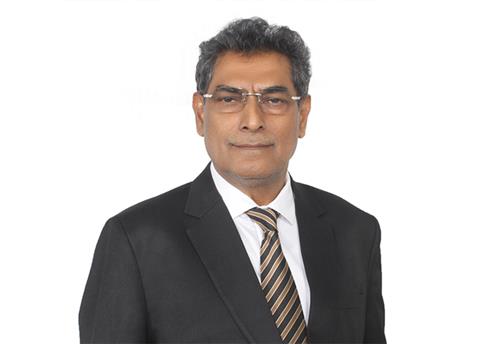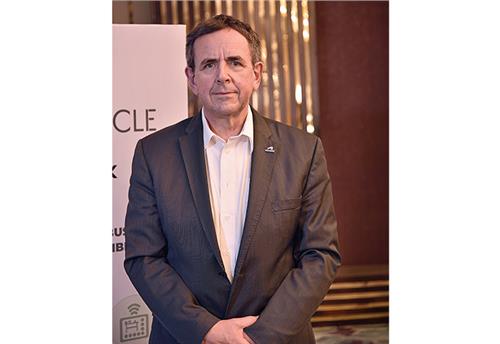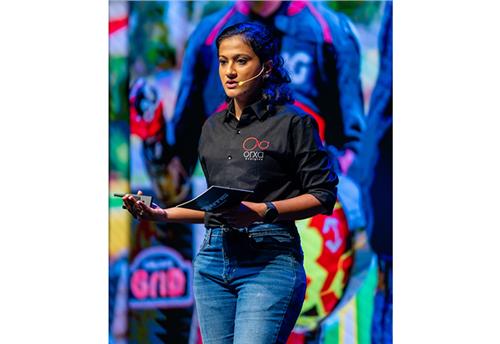O S Kanwar, CMD, Apollo Tyres
By acquiring Dunlop (South Africa), Apollo Tyres has entered the global tyre scenario, says O S Kanwar, CMD, in a têtê-à-têtê with Darius Lam.
What's the rationale behind the deal?
We have bought Dunlop’s South African operations which we believe will be greatly beneficial to Apollo, in terms of new products, access to markets including Europe, Middle East, Africa and South America as well as other brands and manufacturing facilities. We will bring in Dunlop's best practices into our operations so that we are globally benchmarked. This deal will also enhance our product range, particularly in high-performance car and earthmoving tyres.
What are the major challenges for Apollo Tyres in the future?
Our goal is to make Apollo Tyres a US$ 2 billion company by 2010 and this Dunlop buyout is our first step towards globalization. We will look at both organic and inorganic growth opportunities in the future to help us meet our goal. Our big challenge now is to see how well we can synergise the operations and management of the two companies. Also rising raw material prices like rubber will continue to be another challenge, as will the upward movement in crude prices.
How will globalisation affect Indian companies?
I think Indian tyre makers are gearing up and withstanding competition from foreign companies like Bridgestone and Goodyear which are present in India. Michelin has also come in and is bringing in its tyres into India. I am confident that we will be able to meet the challenge of globalisation.
What are your expectations from the soon-to-be-announced Union Budget?
We hope the existing inverted duty structure for tyres is corrected. Natural rubber comprises 40 percent of our cost structure — we feel that duties should be dropped down to minimal levels for this input. As an industry, we should be allowed to import and export freely with minimal hindrance.
What is your opinion on market demand?
I think demand for passenger car tyres and light commercial vehicle tyres will grow faster than for truck tyres. We are focusing in a big way on these two segments.
How do you view new competition from China?
Chinese companies don’t seem to face any cost pressures and have been trying to sell their tyres at extremely low prices. While we have nothing against Chinese tyres being sold here and are ready as an industry to meet competition head-on, what is of grave concern is the several irregularities with their pricing in terms of under-invoicing. An in-house costing study revealed that even if we were to buy the raw material from China, we cannot produce at their cost. This is also an issue of under-invoicing by the people importing these tyres into India who can then afford to sell at these low prices. Dumping of tyres is another problem but we stand out when it comes to service back-up.
Will it be beneficial if Indian tyre companies approach the government?
We have already told the government that there should be no dumping of tyres below their cost in India. So the government should try to fix a minimum price below which tyres cannot be imported; this will ensure that people don’t evade the import duty payable.
Can you throw some light on the trend towards radialisation in India?
There is almost 100 percent radialisation in passenger cars but just 1-2 percent in the truck segment. The key to its growth is the development of the road network and infrastructure, which is growing but at a slow pace. Ultimately this will happen but it could take another five to seven years.
How do you plan to tap ASEAN markets?
Unless we align our duties with those of ASEAN countries, our transaction costs will remain uncompetitive and much too high. We can import anything from outside at one price anywhere in India, but when we sell products from our own country there is a difference in prices due to the various local taxes. They have introduced VAT but CST is still not totally abolished and there is no clear roadmap for this. At the same time, various states in India levy their own taxes; so right now I would say we are in a learning process about these things and I am optimistic that they will be resolved in due course of time.
What is the current status of Apollo's relationship with Michelin?
Our relationship continues to be good but Michelin's view is that there is no sense in straining its resources by putting up a manufacturing facility in India — the market for its tyres is not yet large enough to justify this kind of investment. However, we continue to remain partners in the Indian market.
What is your view on the prospects for economic growth in India?
We are very optimistic on the overall growth prospects for the Indian economy and I am, personally, very bullish on India. The economy will continue to grow strongly over the next five to seven years. Look at any major indices, be it the stock exchange, gold or real estate — all are booming.
RELATED ARTICLES
BRANDED CONTENT: 'We aspire to be among the leading sensors and electro-mechanical products manufacturer'
P. Parthasarathy, Founder & Managing Director, Rotary Electronics Pvt Ltd shares the company's commitment and vision to ...
‘Big opportunity for startups lies in products in India’: Detlev Reicheneder
As electrification levels the playing field, the focus on tech and R&D to bring innovative products is the mantra for st...
'I hope my journey makes people say — I can do this too'
Ranjita Ravi, Co-founder of Orxa Energies — the maker of Mantis e-bikes — shares the challenges of building a startup an...





 By Autocar Pro News Desk
By Autocar Pro News Desk
 30 Jun 2006
30 Jun 2006
 3779 Views
3779 Views









